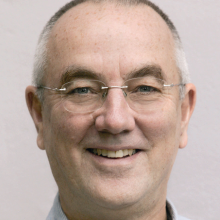GUY CLAXTON

Professor of the Learning Sciences and Research Director, Centre for Real-World Learning, University of Winchester
Honorary Visiting Fellow, Graduate School of Education, University of Bristol
Guy Claxton focuses on how to build more powerful learners: students who remain calm, confident, and curious as they face life’s challenges and pursue their passions. That’s what everyone says, he notes—but Guy, who co-directs the Centre for Real-World Learning at the University of Winchester, UK, has found a promising way to do just that.
He calls it “Building Learning Power”, a simple and inexpensive way of transforming classrooms that has already been implemented with success by tens of thousands of teachers around the world. The key is to stress habits of independent thought, curiosity, and collaboration in students. Teachers treat learning as a set of habits to be developed, just like those that underpin physical fitness, and regularly ask students to reflect on which “learning muscles” are developing well and which still need work. Classroom activities value the learning process more than mere results, so that schools often display failed or partially complete projects on the walls rather than polished, finished products.
Cognitive scientists have proven that intelligence isn’t a fixed quantity, but a trait that students and teachers can shape. “Lots of teachers need to know they’re in the mind-stretching business, not the mind-filling business,” Guy says. Guy likes to focus less on “what” you know and more on “why do you know it”- For example, asking students to explain the usefulness of renewable energy sources like solar or wind power rather than just define what they are.
Guy’s many books on learning, creativity, and the mind include The Learning Powered School, What’s the Point of School?, and the best-selling Hare Brain, Tortoise Mind: Why Intelligence Increases When You Think Less.
Guy has practiced Buddhist mindfulness for many years. “Buddhism is kind of a non-religion—a religion which centers absolutely around firsthand inquisitiveness into the nature of life and your own mind,” he says.”Mindfulness practice strengthens the whole range of learning muscles.”
By 2030, he says, “I would love to go into schools where the lunatics–I call them the ‘learnatics’–have taken over the asylum. The students are running it, and teachers are adjuncts.”